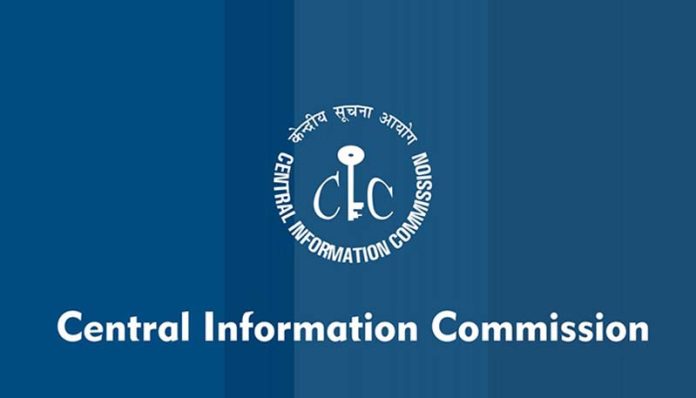‘Seeking info through RTI applications should be exception’
*Need for transparency more in recruitment process
Mohinder Verma
JAMMU, Nov 3: The Public Offices of the Union Territory of Jammu and Kashmir should ensure strict compliance of proactive disclosure norms in order to achieve the cherished objective of the Right to Information Act. Moreover, voluntary disclosure of all information that ought to be displayed in the public domain should be the rule and public seeking information through RTI application should be an exception.
Click Here To Join Daily Excelsior on WhatsApp And Get Latest News
This has been stressed by Central Information Commission (CIC) while dealing with several Second Appeals filed against Public Authorities of J&K UT for not providing timely information under the transparency law.
“Voluntary disclosure of all information that ought to be displayed in the public domain should be the rule and members of public seeking information through RTI application should be an exception”, the Commission said while dealing with Second Appeal filed after denial of information about works executed under Swachh Bharat Mission (SBM) and MGNREGA in Doda.
The Commission further said, “an open Government, which is the cherished objective of the RTI Act, can be realized only if all Public Offices comply with proactive disclosure norms. Section 4(2) of the RTI Act mandates every Public Authority to provide as much information suo-motu to the public at regular intervals through various means of communications including the internet so that the public need not resort to the use of RTI Act”.
“Need for transparency is more in the case of appointment/recruitment process”, the Commission has stressed while directing the concerned PIO of the Rural Development Department of J&K to ensure that information related to details of CSC, detail of works under SBM and details of works under MGNREGA etc as permissible for disclosure under the RTI Act, 2005 is suo motu disclosed on website in the interest of public at large and for ensuring transparency and accountability.
Similarly, while dealing with the Second Appeal filed after denial of information by the Indian Red Cross Society, J&K, the Central Information Commission observed, “this Public Authority should ensure suo motu disclosure of maximum information relating to list of activity programs conducted; gross amount of donations received; expenditure related reports etc are published regularly on their website, in compliance of the provisions of Section 4 of the RTI Act in order to promote transparency and accountability in functioning of the Public Authority”.
While proactively disclosing the information, due caution should also be exercised to strictly adhere to the provisions of the Section 8 and 9 RTI Act and redact any information which falls under any of the exemption clauses by applying the severability clause as laid down under Section 10 of the RTI Act, the CIC stressed.
Likewise, the transparency watchdog of the country has directed the Power Development Department of J&K to take necessary steps for suo motu disclosure of maximum information on website about the number of transformers installed in compliance of the provisions of Section 4 of the RTI Act.
“The respondent is duty bound by virtue of the provisions of Section 4 of the RTI Act to publish the information on its website so that the public need minimum resort to the use of the RTI Act to obtain the information”, the CIC further stressed.
Meanwhile, the Central Information Commission, while disposing of Second Appeal whereby information was sought from the J&K Waqf Board but was not furnished well in time, has taken grave exception to the factum of delay caused by the CPIO in providing any reply to the appellant and also no substantial explanation for such delay has been tendered by the CPIO.
“Such casual conduct of the CPIO causes unwarranted obstruction to the appellant’s right to information and is in grave violation to the provisions of RTI Act. The CPIO is directed to file a written submission detailing the reason for not providing any reply within the time bound manner as per the RTI Act provisions”, the CIC said.
“The written explanation should reach the Commission within 15 days from the date of receipt of the order”, read the order passed in the Second Appeal.


